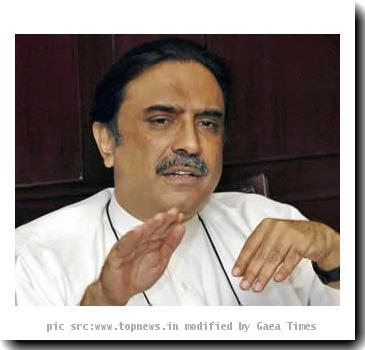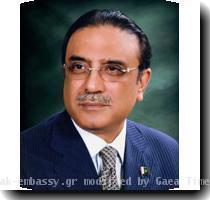“God, why have you done this?” Pakistani flood victim asks as he flees historic deluge
By Khalid Tanveer, APThursday, August 5, 2010
Hundreds flee Pakistan floods, as criticism grows
KOT ADDU, Pakistan — Flood survivors loaded down with possessions fled a growing deluge in Pakistan’s most populous province Thursday as the government came under renewed criticism for its response to the worst monsoon rains in decades.
Authorities issued flood warnings for Punjab province in Pakistan’s east and Sindh province in the south, where rivers were swelling to dangerous levels.
Floods have already killed more than 1,500 people in Pakistan over the last week and affected some 3 million others.
They followed the crash of a passenger jet last week close to the capital and coincided with deadly riots in the country’s largest city, Karachi. On Wednesday, a suicide bomber killed a paramilitary police commander in the northwest, a reminder of the country’s ever-present terror threat.
The government has come under criticism for its handling of the crises. President Asif Ali Zardari, who was already widely unpopular, is on a five-day European tour after rejecting calls to stay home and direct the flood response.
After causing huge destruction in the northwest, the center of the fight against al-Qaida and the Taliban, floodwaters have moved down the country and deluged villages and some urban centers in Punjab, the richest and most populous province. The army used boats and helicopters to move stranded villagers to higher ground.
“We are migrants in our home,” said Ahmad Bakhsh, 56, who fled Sanawan, a town now under water. “Oh God, why have you done this?”
Much of the flooding is from the River Indus, which originates in the Himalayas and travels through the country.
They are the worst to hit Pakistan’s northwest since 1929, and Sindh is expecting the floods to be the worst there in 34 years.
Some of those fleeing carried kitchen utensils and pots and pans. Others hoisted children in their arms. Bakhsh said about 2,000 people were still waiting for help. Troops had already evacuated about 8,000.
Maj. Gen. Nadir Zeb, the region’s army commander, said many people had ignored flood warnings and only realized the danger of the situation when water entered their cities, towns and villages.
“They risked their lives, but we are reaching them,” he said.
In the northwest, rescue workers have struggled to deliver aid because of washed-out bridges and roads. Several countries, including the United States, have stepped in to help. But many flood victims have complained that aid is not reaching them fast enough or at all, expressing anger that could grow as floods spread to new areas.
Zardari — ever fearful of militant threats — rarely makes public appearances even when he is in Pakistan. A few months ago, he agreed to constitutional reforms that transferred many of his presidential powers to the prime minister, leaving him more of a figurehead.
Still, victims and rival politicians have pounded Zardari for his trip overseas.
“In the face of such calamity, the people need to feel that their leaders are standing by them,” said an editorial in the News, a newspaper that makes no secret of its dislike of the president.
Zardari aide Farahnaz Ispahani said the president was thinking of Pakistan’s long-term future in tackling the diplomatic front. Zardari’s schedule includes a meeting with British Prime Minister David Cameron, who recently caused a fury in Pakistan by accusing it of exporting terror.
“The government must continue its business so that the nation moves forward,” Ispahani said. “This may not play to the galleries, but everything cannot come to a standstill when there is a disaster, especially in a parliamentary democracy with a prime minister and Cabinet in place.”
Tags: Asia, Asif Ali Zardari, Emergency Management, Floods, Kot Addu, Pakistan, South Asia



